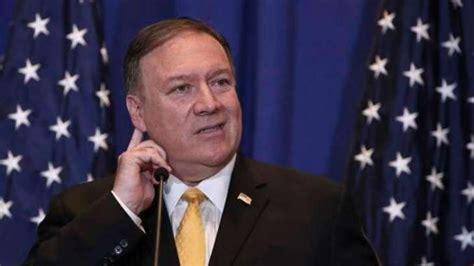
Syria sanctions designations on the anniversary of Assad’s attack against the people of Armanaz
Three years ago yesterday, on September 29, 2017, Assad regime forces, backed by Russia, killed at least 34 Syrians in the town of Armanaz. Since then, thousands of Bashar al-Assad’s bombs have been dropped on schools, hospitals, and markets across Syria. Too many lives have been lost in Assad’s futile search for a military conquest over his own people.
Today, the United States is announcing 17 Syria sanctions designations as part of the Administration’s continuing campaign to achieve the goals of the Caesar Syria Civilian Protection Act of 2019 and hold Assad and his enablers accountable for their crimes, including the killings at Armanaz and in countless other Syrian communities.
Along with the 14 designations announced by the Department of the Treasury targeting Assad’s corrupt financiers, officials, and affiliated businesses, the Department of State is issuing three designations against the 5th Corps of the Syrian Arab Army and Bashar al Assad’s personal illicit business network. Specifically, we are designating 5th Corps commander Milad Jedid pursuant to Executive Order (E.O.) 13894 for his involvement in the obstruction, disruption, or prevention of a ceasefire in Syria.
Furthermore, we are designating Nasreen Ibrahim and Rana Ibrahim, the adult sisters of Assad financier Yasser Ibrahim, pursuant to section 2(a)(ii) of E.O. 13894. The Ibrahim family, led by Yasser Ibrahim, acts as a front for Bashar al-Assad and his wife Asma al Akhras. While millions of Syrians face hunger, the Ibrahims are on a spending spree to expand Assad’s and Akhras’s personal stranglehold on the Syrian economy.
As a general matter, U.S. sanctions do not target humanitarian-related trade, assistance, or activities. In sharp contrast to the Assad regime and bad actors like the Ibrahims, the United States continues to increase its support for the Syrian people. This includes more than $720 million announced on September 24, which brings the total U.S. humanitarian support for the Syrian people to over $12 billion since the start of the crisis.
The Administration’s designations of senior Government of Syria officials, military commanders, and corrupt business leaders will not cease until the Assad regime and its enablers take irreversible steps to end their campaign of violence against the Syrian people and genuinely implement United Nations Security Council Resolution 2254. Thus far, Assad’s foreign enablers have only emboldened his regime’s cronies and deepened their involvement in the exploitative financial and military apparatus that underpins the regime’s survival. There is a clear path forward. The Syrian people have suffered enough. Now is the time for a peaceful political resolution of the Syrian conflict as called for in UNSCR 2254.





